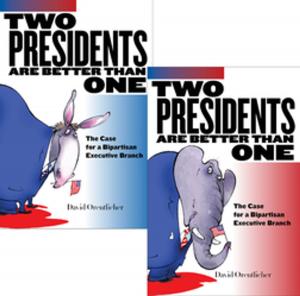| Author: | Kenneth L. Shropshire | ISBN: | 9780814739679 |
| Publisher: | NYU Press | Publication: | August 1, 1996 |
| Imprint: | NYU Press | Language: | English |
| Author: | Kenneth L. Shropshire |
| ISBN: | 9780814739679 |
| Publisher: | NYU Press |
| Publication: | August 1, 1996 |
| Imprint: | NYU Press |
| Language: | English |
From the days of the Negro Leagues in baseball up to the present when collegiate basketball factories entice and then fail to educate young black men, sports in America have long served as a barometer of the country's racial climate. Just as blacks are generally absent from the upper echelons of corporate America, they are similarly underrepresented from the front offices of the sports industry as well. In this compact volume, Kenneth L. Shropshire confronts prominent racial myths head-on, offering both a descriptive history of--and prescriptive solutions for--the most pressing problems currently plaguing sports. At present, whites have a 95% ownership stake in professional basketball, baseball, and football teams. And yet, when confronted with programs intended to diversify their front offices, many teams resort to the familiar refrain of merit-based excuses: there simply aren't enough qualified black candidates or they don't know how to network. While more subtle, this approach has the same effect as the racist comments of an Al Campanis or a Marge Schott: it stigmatizes and excludes African-Americans. In the insular world of sports, characterized by a feeder system through which former players often move up to become coaches, managers, executives, and owners, blacks are eminently qualified. For example, after decades of active involvement with their sport, they often bring to the table experiences more relevant to the black players which make up the majority of professional athletes. Given the centrality of sport in American life, it is imperative that the industry be a leader, not a laggard, in the arena of racial equality.
Informed by Frederick Douglass's belief that power concedes nothing without a demand, In Black and White casts its net widely, dissecting claims of colorblindness and reverse racism as self-serving, rhetorical camouflage and scrutinizing professional and collegiate sports, sports agents, and owners alike. No mere critique, however, the volume looks optimistically forward, outlining strategies of interest to all those who have a stake, professional or otherwise, in sports and racial equality.
From the days of the Negro Leagues in baseball up to the present when collegiate basketball factories entice and then fail to educate young black men, sports in America have long served as a barometer of the country's racial climate. Just as blacks are generally absent from the upper echelons of corporate America, they are similarly underrepresented from the front offices of the sports industry as well. In this compact volume, Kenneth L. Shropshire confronts prominent racial myths head-on, offering both a descriptive history of--and prescriptive solutions for--the most pressing problems currently plaguing sports. At present, whites have a 95% ownership stake in professional basketball, baseball, and football teams. And yet, when confronted with programs intended to diversify their front offices, many teams resort to the familiar refrain of merit-based excuses: there simply aren't enough qualified black candidates or they don't know how to network. While more subtle, this approach has the same effect as the racist comments of an Al Campanis or a Marge Schott: it stigmatizes and excludes African-Americans. In the insular world of sports, characterized by a feeder system through which former players often move up to become coaches, managers, executives, and owners, blacks are eminently qualified. For example, after decades of active involvement with their sport, they often bring to the table experiences more relevant to the black players which make up the majority of professional athletes. Given the centrality of sport in American life, it is imperative that the industry be a leader, not a laggard, in the arena of racial equality.
Informed by Frederick Douglass's belief that power concedes nothing without a demand, In Black and White casts its net widely, dissecting claims of colorblindness and reverse racism as self-serving, rhetorical camouflage and scrutinizing professional and collegiate sports, sports agents, and owners alike. No mere critique, however, the volume looks optimistically forward, outlining strategies of interest to all those who have a stake, professional or otherwise, in sports and racial equality.















